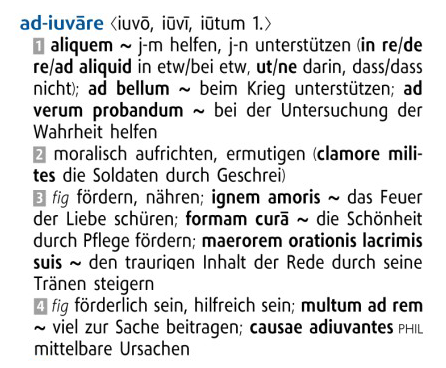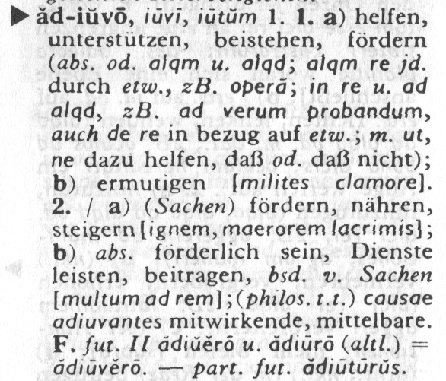I do not know a Latin–English dictionary that gives simple, accessible, clearly structured usage notes for verbs and simple, stripped-down examples. If such a dictionary exists, I would expect it to be found in the educational market, catering to students of Latin in secondary school.
I know this is an English language website, and non-English dictionaries may not be very helpful for most readers. To those who speak German, however, I can recommend a Latin–German dictionary which I believe fits the requirements the OP seems to be asking for: Langenscheidt's Großes Schulwörterbuch Lateinisch-Deutsch, which is indeed targeted at secondary-school students. Here is what the entry for adiuvare looks like (screenshot from the online preview on the publisher's site):

Note: (1) usage patterns are indicated by using ali- placeholders like aliquem (accusative object) or forms of res; (2) succinct examples that are easy to remember; (3) the typesetting makes the entry easy to read; (4) it gives only the most important usages. This dictionary actually has a long pedigree, it is based on Erich Pertsch's revisions to the Menge-Güthling, ultimately going back to Hermann Menge's first Latin–German dictionary from 1907. (Langenscheidt has published a confusing multitude of fashionably-named dictionaries based on this stock through the decades.)
For comparison, to show how far we've come, here is the same entry from my own copy of Langenscheidts Handwörterbuch Lateinisch-Deutsch (1983):

To be honest, one gets used to the telegram style with time, so it is actually pretty usable. But I have to admit the newer version is easier to read.

